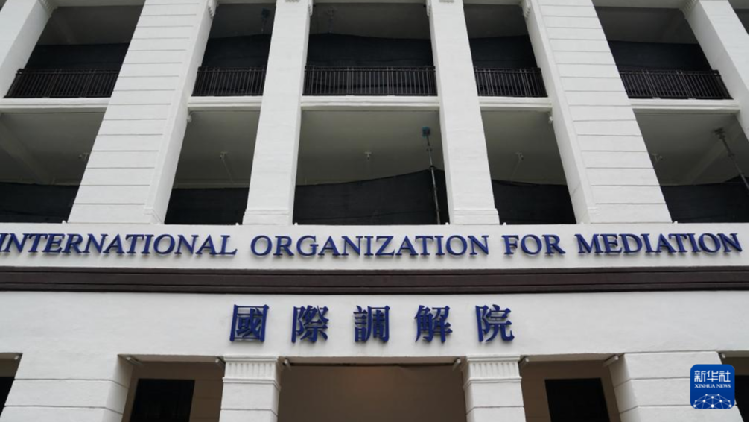China's Support in Establishing the International Organization for Mediation: A Strategic Move for Global Peace and Diplomacy
China's involvement in establishing the International Organization for Mediation reflects its commitment to promoting peaceful conflict resolution and fostering global stability.

China's Hong Kong Special Administrative Region (HKSAR) experienced a significant diplomatic development on Friday as high-ranking officials and dignitaries gathered for the signing ceremony of the Convention on the Establishment of the International Organization for Mediation (IOMed). The event, which brought together about 400 representatives from 85 countries and nearly 20 international organizations, marked a new chapter in international dispute resolution, with 33 nations signing up as founding members on-site.
Speaking at the occasion, Chinese Foreign Minister Wang Yi characterized the birth of IOMed as an "innovative step in international rule of law" and described its significance as far-reaching in the landscape of global governance. Experts present echoed this sentiment, emphasizing that the organization addresses a long-standing gap in the global system: the absence of a dedicated, intergovernmental legal entity to mediate complex disputes across borders.
The founding mandate of IOMed is rooted in the principles and purposes of the United Nations Charter, particularly Article 33, which identifies mediation as a primary means for the peaceful settlement of international conflicts. Until now, no single intergovernmental body existed to perform this function on a global scale. The launch of IOMed not only fills this institutional void but also sets a precedent for approaching disputes with negotiation and dialogue rather than confrontation or escalation.
For many observers, IOMed’s establishment reflects China’s broader diplomatic philosophy of harmony and mutual benefit. Instead of adhering to a zero-sum approach, the organization encourages solutions that all parties can accept—especially important for developing countries that have often found existing mechanisms prohibitively expensive or biased toward wealthier nations. As Xu Ying, an expert in international affairs, commented, "The IOMed is explicitly designed to be different: more accessible, neutral, and non-coercive, ensuring fairness and greater inclusivity."
Significantly, IOMed will be headquartered in Hong Kong, underscoring the city’s unique role as a bridge between East and West. Hong Kong’s strengths—a robust legal system, a blend of common law and civil law traditions, a dynamic business environment, and its close ties both to mainland China and the broader world—make it an ideal base for this ambitious new institution. The recent affirmation of Hong Kong’s "stable" rating by major international credit agencies further highlights its continued relevance and reliability as an international hub.
The inauguration of IOMed signals a commitment to peaceful conflict resolution and could alter the dynamics of international relations for years to come. Offering flexible, efficient, and cost-effective alternatives to litigation and arbitration, the organization aims to provide states and investors, particularly those from the developing world, with fairer avenues to settle their disputes. As the world grapples with increasingly complex geopolitical and commercial challenges, the creation of IOMed represents a tangible step toward building a more just and harmonious international order.




